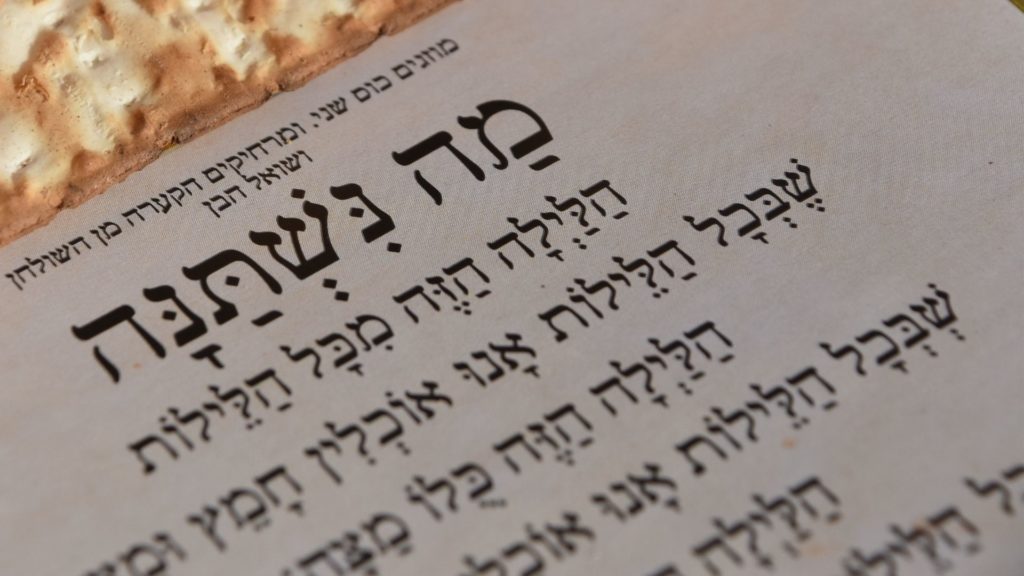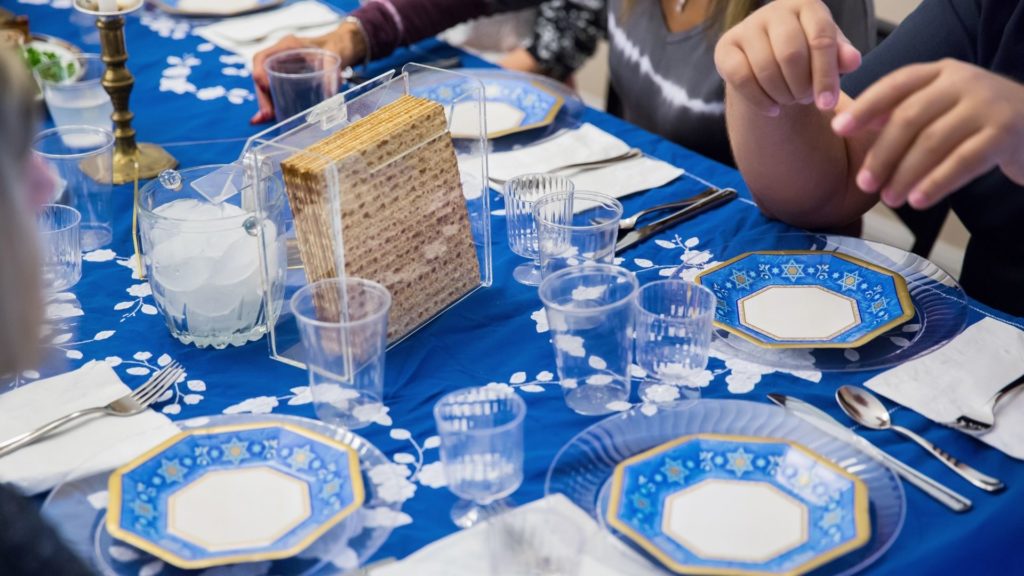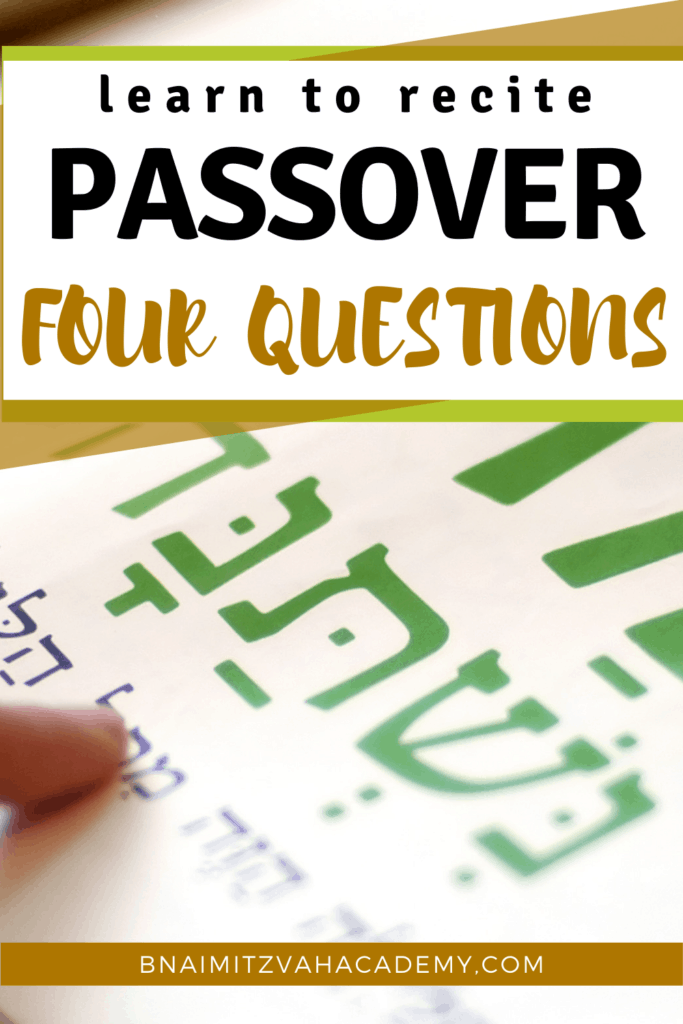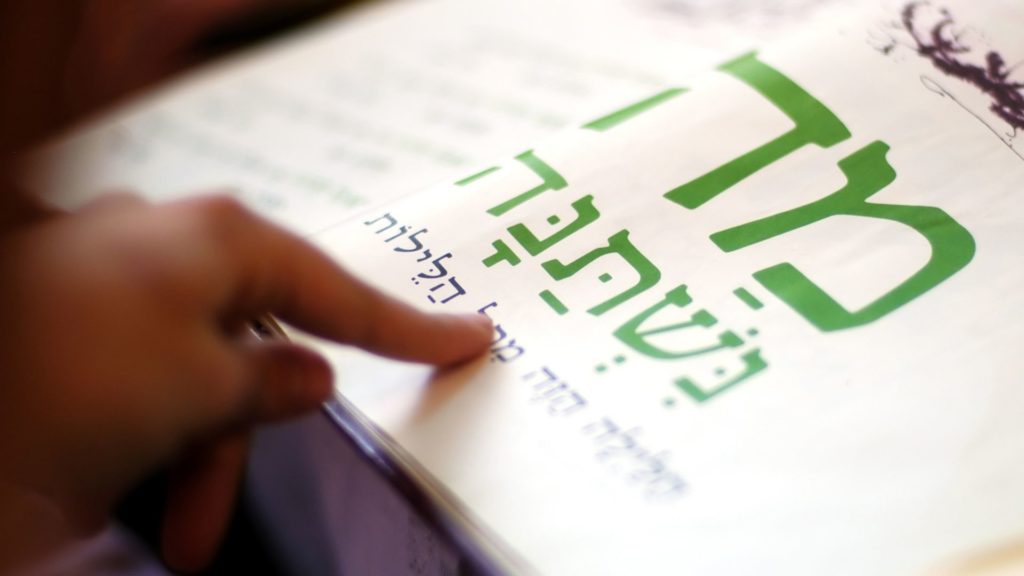Ma Nishtanah? This Post is Different Because We Really Break Down Passover’s Famous Four Questions
Four Questions are recited in Hebrew during the Passover seder. They typically come at the beginning of the Magid, the telling of the Exodus story. This part of the seder falls after the middle matzah is broken and the afikomen is hidden and before the discussion of the four sons. The four questions can be found in the Haggadah, the text used to tell the Passover story and the Israelites exodus from Egypt.
Why Do We Ask The Four Questions on Passover?
On Passover, we celebrate freedom from slavery. Since slaves are not allowed the freedom to question authority or voice independent thought, we say the Four Questions to celebrate that we now have the right to do so.

Who Recites the Passover Four Questions?
Traditionally, the honor or reciting the four questions is bestowed upon the youngest person at the Passover seder table. But, if the youngest is too young or feels too much pressure, it is perfectly acceptable for all the kids or even all of the seder participants to chant the 4 questions in Hebrew together.
What does Ma Nishtahna mean in Hebrew?
The word MAH in Hebrew means “why”. NISHTANAH is a verb asking why “it is different” or “it became different?” LILAH in Hebrew means night and ZEH means this. The letter HEY is needed at the beginning of both words for proper Hebrew grammar. In Hebrew, conjunctions and prepositions can actually be a letter at the beginning of the following word and not always their own individual word. So, the letter MEM in front of KOL (which means everything or all) is actually the preposition “from.” So, MEEkOHL means “from all.” HALEILOT is the plural form of “night”, so “nights.”

Learn the Mah Nishtanah Chant: Translation + Transliteration
Psst: If the transliteration is in parentheses, it means that you repeat the chant for those words. You sing them twice in a row. And, technically, if you count the Ma Nishtanah question itself, there are really five questions.
How is this night different from all other nights?
מַה נִּשְׁתַּנָּה הַלַּיְלָה הַזֶּה מִכָּל־הַלֵּילוֹת
TRANSLITERATION
Mah nishtanah halailah hazeh (mikol haleilot)?
TRANSLITERATION #2: BMA STYLE
MAH NEEsh-tAH-nAH HAH-LAI-LAH HAH-zEH (MEE-kOHL HAH-LAY-LOHt)
Ma Nishtanah Audio
#1: On all other nights, we eat chametz (leavened foods) and matzah. Why on this night, only matzah?
שֶׁבְּכֹל־הַלֵּילוֹת אָנוּ אוֹכְלִין חָמֵץ וּמַצָּה הַלַּיְלָה הַזֶּה כֻּלּוֹ מַצָּה
TRANSLITERATION
Sheb’chol haleilot anu ochlin (chametz umatzah), (halailah hazeh), kuloh matzah.
TRANSLITERATION #2: BMA STYLE
ShEH-bEH-chOHL HAH-LAY-LOHt AH-nOO OHch-LEEn (ChAH-mAYtz OO-mAH-tzAH) (HAH-LAI-LAH HAH-zEH) KOO-LOH MAH-tzAH.
Learn to Chant Question #1:
#2: On all other nights, we eat all vegetables. Why, on this night, maror (bitter herbs)?
שֶׁבְּכֹל־הַלֵּילוֹת אָנוּ אוֹכְלִין שְׁאָר יְרָקוֹת הַלַּיְלָה הַזֶּה מָרוֹר
TRANSLITERATION
Sheb’chol haleilot anu ochlin (sh’ar y’rakot), (halailah hazeh), (maror).
TRANSLITERATION #2: BMA STYLE
ShEH-bEH-chOHL HAH-LAY-LOHt AH-nOO OHch-LEEn (ShEH-AHr YEH-rAH-kOHt) (HAH-LAI-LAH HAH-zEH) (MAH-rOHr).
Learn to Chant Question #2:
#3: On all other nights, we don’t dip even once. Why on this night do we dip twice?
שֶׁבְּכֹל־הַלֵּילוֹת אֵין אָנוּ מַטְבִּילִין אֲפִילוּ פַּעַם אֶחָת הַלַּיְלָה הַזֶּה שְׁתֵּי פְעָמִים
TRANSLITERATION
Sheb’chol haleilot ein anu matbilin (afilu pa’am echat); (halailah hazeh), sh’tei f’amim.
TRANSLITERATION #2: BMA STYLE
ShEH-bEH-chOHL HAH-LAY-LOHt AYn AH-nOO MAHt-bEE-LEEn (AH-fEE-LOO PAH-AHm EH-chAHt) (HAH-LAI-LAH HAH-zEH) ShEH-tAY FEH-AH-mEEm.
Learn to Chant Question #3:
#4: On all other nights, we eat either sitting upright or reclining. Why on this night do we all recline?
שֶׁבְּכֹל־הַלֵּילוֹת אָנוּ אוֹכְלִין בֵּין יוֹשְׁבִין וּבֵין מְסֻבִּין הַלַּיְלָה הַזֶּה כֻּלָּנוּ מְסֻבִּין
TRANSLITERATION
Sheb’chol haleilot anu ochlin (bein yoshvin uvein m’subin); (halailah hazeh), kulanu m’subin.
TRANSLITERATION #2: BMA STYLE
ShEH-bEH-chOHL HAH-LAY-LOHt AH-nOO OHch-LEEn (BAYn YOHsh-vEEn OO-vAYn MEH-sOO-bEEn) (HAH-LAI-LAH HAH-zEH) KOO-LAH-nOO MEH-sOO-bEEn.
Learn to Chant Question #4:
Download Four Questions PDF Printable
The Four Questions in English
Why is this night different from all other nights?
- Why is it that on all other nights of the year we eat either leavened bread or matzah, but on this night we eat only matzah?
- Why is it that on all other nights we eat all kinds of vegetables, but on this night we eat bitter herbs?
- Why is it that on all other nights we do not dip our food even once, but on this night we dip them twice?
- Why is it that on all other nights we dine either sitting upright or reclining, but on this night we all recline?
Are you interested in learning to recite other Jewish blessings? Check out the other posts on my blog!
11 Fun Passover Seder Ideas to Enrich Your Pesach Meal
Passover Zoom Backgrounds for Your Virtual Seder
Learn Passover Greetings in English, Hebrew & Yiddish
Passover Table Decorations: Beautiful Seder Decor
Are you on Pinterest? Learn to recite the Passover Four Questions later!



I am reciting the Passover blessings at a Seder Meal held at a Catholic Church and I wanted to hand out the blessings in Hebrew and English as well as the Four Questions. This site is very helpful